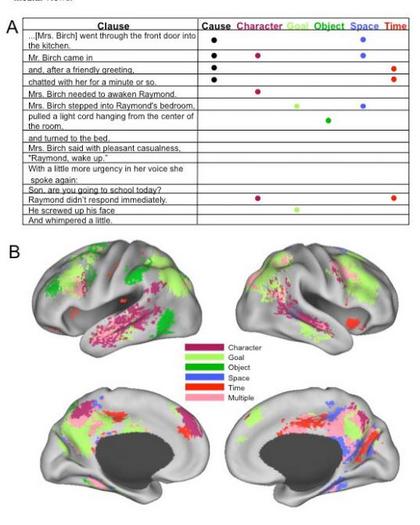The study concludes that our brains simulate the action in the story, echoing it as we read.
Nicole Speer, lead author of this study, says findings demonstrate that reading is by no means a passive exercise. Rather, readers mentally simulate each new situation encountered in a narrative. Details about actions and sensation are captured from the text and integrated with personal knowledge from past experiences. These data are then run through mental simulations using brain regions that closely mirror those involved when people perform, imagine, or observe similar real-world activities."These results suggest that readers use perceptual and motor representations in the process of comprehending narrated activity, and these representations are dynamically updated at points where relevant aspects of the situation are changing," says Speer, now a research associate with The Western Interstate Commission for Higher Education (WICHE) Mental Health Program in Boulder, Colo. "Readers understand a story by simulating the events in the story world and updating their simulation when features of that world change."


No comments:
Post a Comment